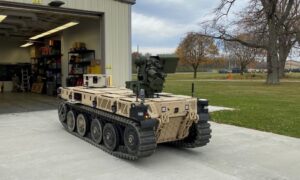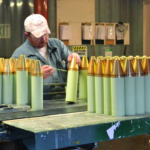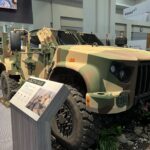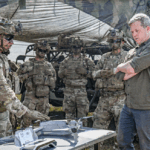
Autonomy and robotics firm Stratom has received a deal from the Army to develop a personnel safety and situational awareness system for the new Robotic Combat Vehicle-Light platform, the company said Monday. Stratom said its Perimeter Safety for Autonomous Vehicles (P-SAV) system is a standalone kit that can be integrated on robotic vehicles to provide 360-degree sensor coverage and machine learning capabilities for identifying large objects around the platform. “As robotic vehicles are increasingly utilized across applications where it may…

 By
By 











